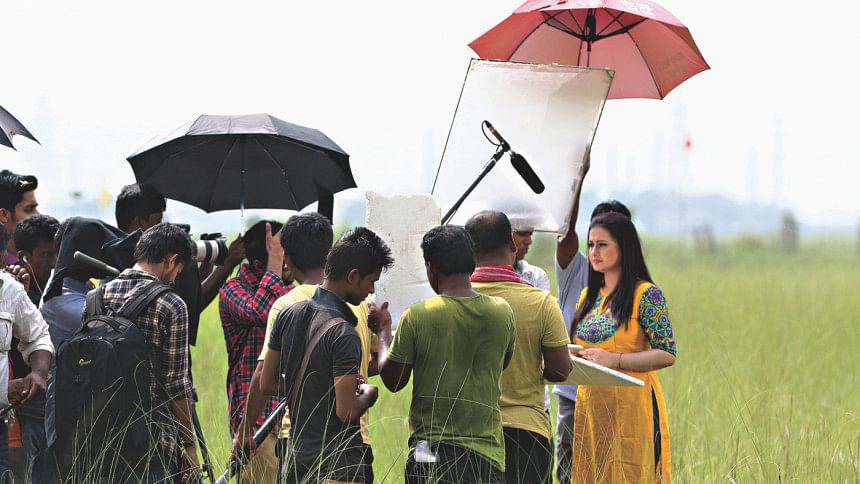Behind the lights, camera and action

In a shooting unit for a film or television project, there are crew members whose contribution and hard work are fundamental to the production's success. Starting from workers in the transport unit to production managers who supervise everything on the sets, the crew members are the actual champions behind the scenes. They reach the shooting spots before everyone else and are often, the last ones to leave. Yet, more often than not, they are left without any recognition.
Production crew and staff members are afraid of losing their jobs and income, despite plans to address loss of income in the country, after the coronavirus pandemic brought nations across the globe essentially to a standstill. The Daily Star recently reached out to some production crew members of the showbiz world, to find out more about their lives and how they are responding to the global crisis.
"As we get paid on a day-to-day basis, we don't have a monthly salary. Yet, we don't always get paid on spot," shared Hashem, a gaffer, the lead technician of a production crew who is responsible for setting up all the lights for filming. "Sometimes, we don't receive our deserved payment even after months have passed." Hashem has been working in production since 2006.
Most of these shift workers come from low-income families. They live from hand to mouth and are struggling to make ends meet. They shared that their employment system needs to be more organised and fair.
When a crew member passed away in a road accident during the Eid holidays last year, other staff members protested and demanded justice for him, along with some notable actors. Yet, in the end, their efforts were of no use and the deceased worker was soon forgotten.
"All we want is for people to give us the recognition that we deserve," said Rakib, an aspiring gaffer who has been working in a lighting crew since 2010. "As the shootings of all films and television projects have been postponed indefinitely, we hope that people will be willing to support us in this time of crisis."
Similarly, Robi, a second unit staff member, added, "All our hard work goes behind the success of a production. But compared to others, we barely receive the proper recognition and praise." Robi hopes to pursue his higher studies abroad.
Ali, a struggling production manager who has been in the business for the last fourteen years, is the only breadwinner in his family. "I often fail to send my mother the monthly money as we don't always get paid on time," he said.
Salahuddin, a make-up artiste who started working when he was in primary school, reflected on his struggles. "Most of the time, I only get to work for ten days in a month and I have to support my family with that money," he shared. The only earning member in a family of five, Salahuddin is passionate about his job, despite the hardships that come with it.
"Most people are reluctant to give chances to newcomers in this business, even if they are highly capable and skilled at what they do," said Rubel, a freelance cameraman.
Chisty, another cameraman who works on YouTube content and television shows, had a more positive outlook. "This line of work offers a certain kind of independence as I do not have to follow a monotonous, daily routine," he said. However, Chisty added that people in the industry often take advantage of the production workers for their own benefit.
"The price of gas is rising regularly, but the rent of our transport services has not increased," shared Ruhul, a car owner in the transport unit of a shooting crew. "I expect all of us in the industry to work together in harmony during these trying times."
Although several production houses and associations are providing financial support to crew members in these difficult and unprecedented circumstances, it is vital to come up with proper payment packages for these essential workers, for their livelihood and security.

 For all latest news, follow The Daily Star's Google News channel.
For all latest news, follow The Daily Star's Google News channel. 



Comments